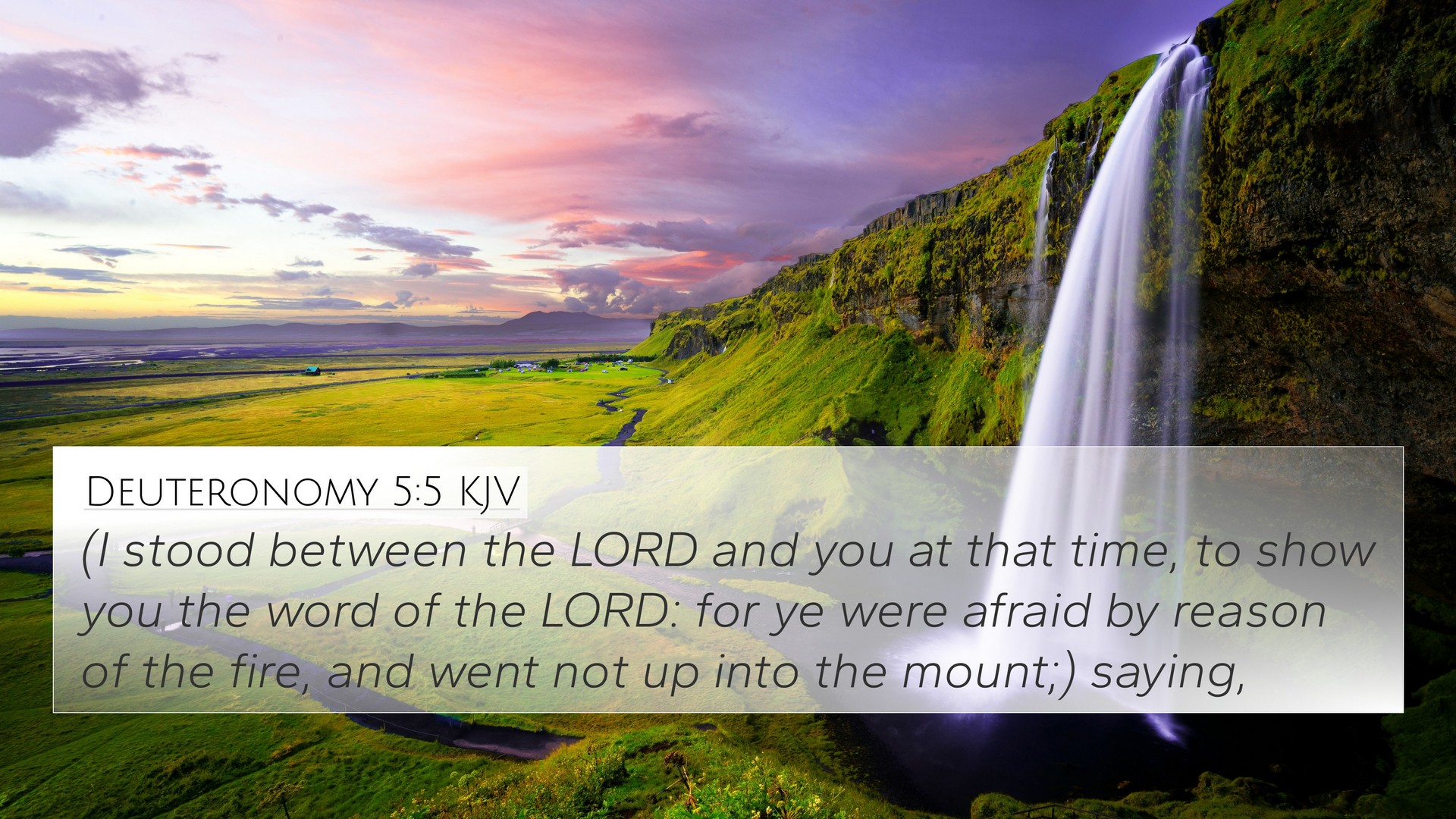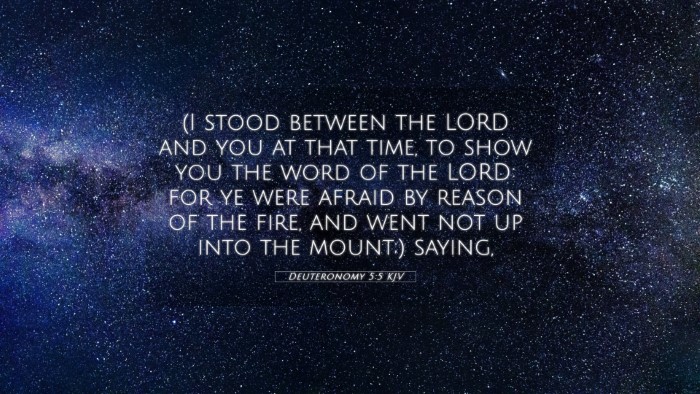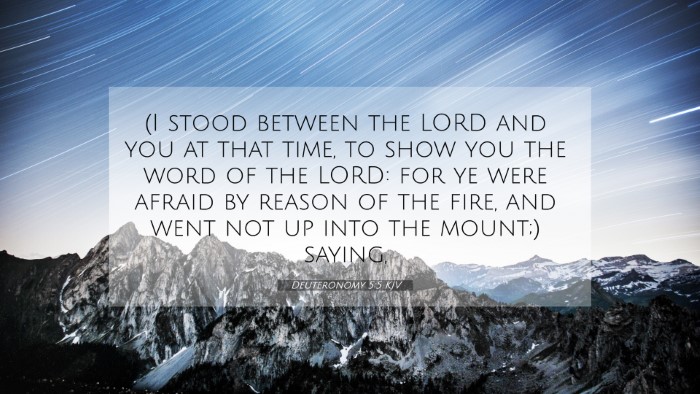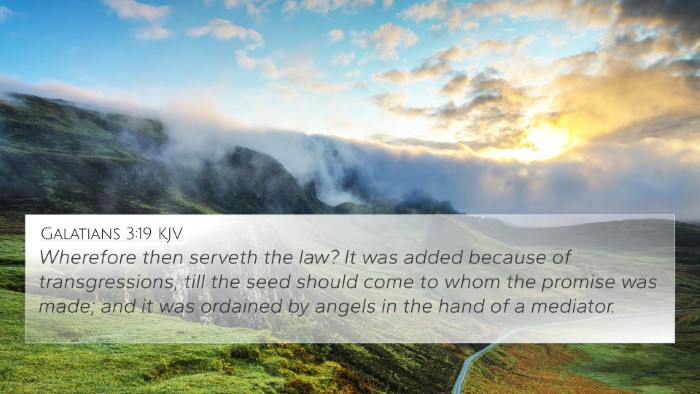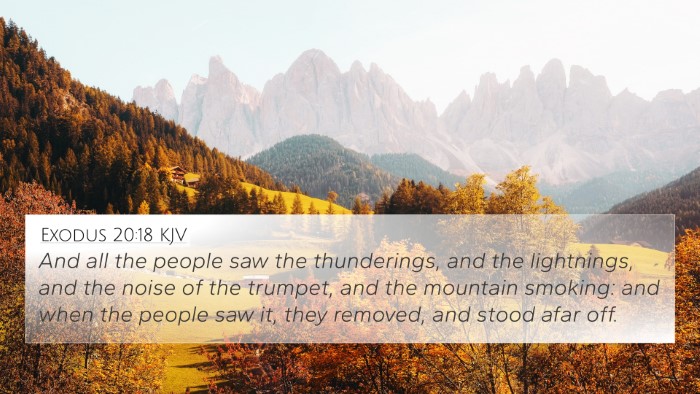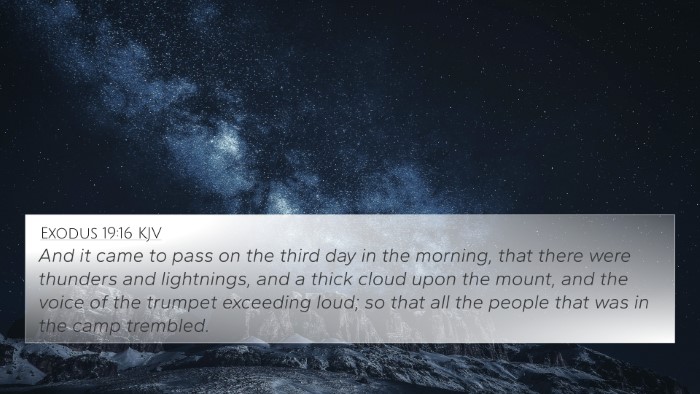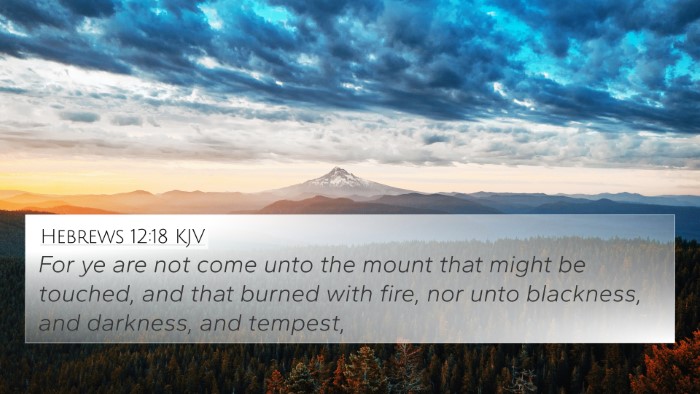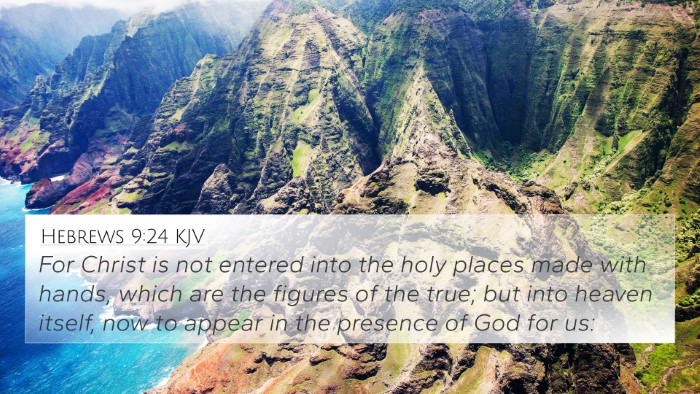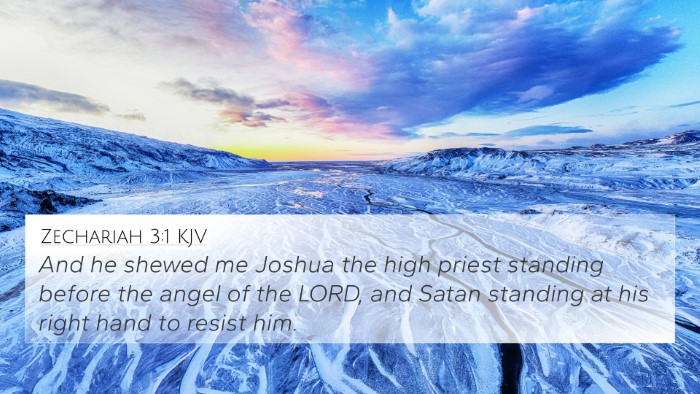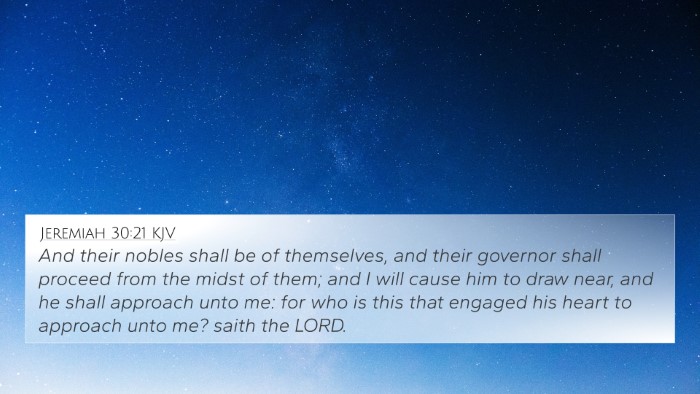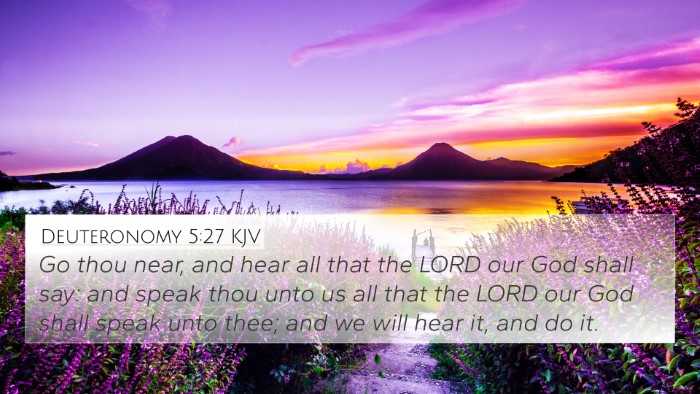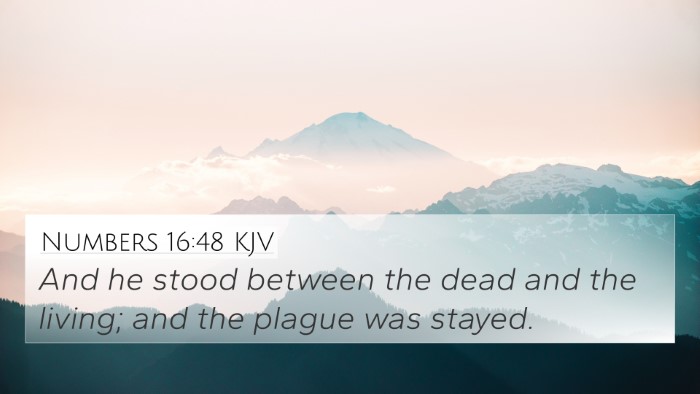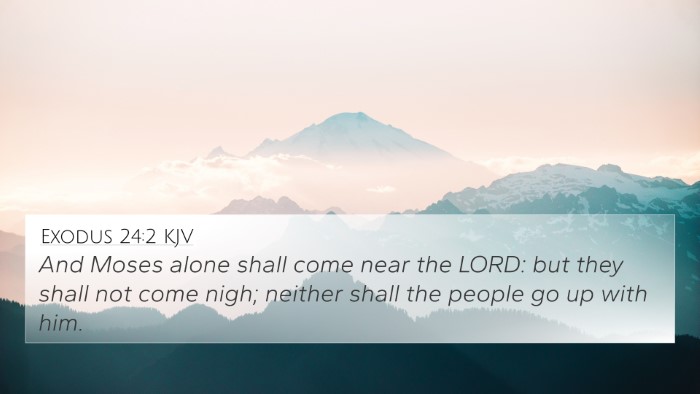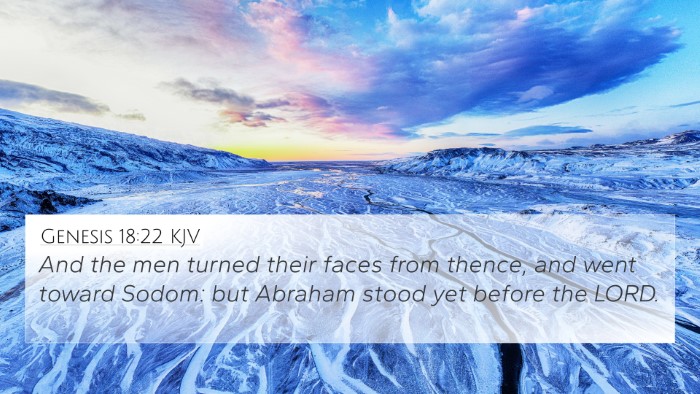Understanding Deuteronomy 5:5
Deuteronomy 5:5 reads: "I stood between the LORD and you at that time, to show you the word of the LORD: for ye were afraid by reason of the fire, and went not up into the mount; saying, I am the LORD your God." This verse reflects a pivotal moment where Moses serves as an intermediary between God and the Israelites.
Summary of Insights
This verse carries profound implications about God's communication with His people, the role of mediation, and the reverence due to divine authority.
Role of Moses as Mediator
Moses' role as a mediator emphasizes the necessity of someone to bridge the gap between the holy God and sinful humanity. Henry notes that this mediatorial role reflects a broader biblical theme concerning the need for intercession.
Fear of Divine Presence
The fear expressed by the Israelites serves to highlight the moral condition of the people before God. Clarke explains that their fear was a natural response to experiencing God's holiness and might.
Understanding God’s Law
Barnes mentions that the giving of the Law is heavily contextualized by the understanding of God's character—this instance reveals both His justice and mercy. God gives laws not merely as commands but as guidelines for maintaining a relationship with Him.
Related Bible Verse Cross-References
- Exodus 20:18-19: Discusses the fear that gripped the people when they saw the thunderings and lightnings.
- Hebrews 12:18-21: Contrasts the terrifying sight on Mount Sinai with the grace found in Christ.
- 1 Timothy 2:5: Emphasizes the need for a mediator between God and humans, which points to Christ as our ultimate mediator.
- Romans 5:1: Talks about peace with God through our Lord Jesus Christ, showing the fulfillment of mediation.
- Galatians 3:19: Discusses the purpose of the law, which connects to the mediatory function of Moses.
- Job 9:33: Job's longing for a mediator between himself and God, echoing feelings of worthiness and distance.
- Matthew 5:17: Jesus did not come to abolish the law but to fulfill it, linking the old covenant with the new.
- Luke 10:22: Reflects on the exclusivity of the knowledge of God in Jesus, indicative of Jesus being the true mediator.
- 2 Corinthians 5:18-19: God was reconciling the world to Himself through Christ, embodying the essence of mediation.
- Romans 3:20: The purpose of the law is to reveal sin, establishing the need for a mediator from the outset.
Thematic Bible Verse Connections
Connecting this verse to the overarching themes of the Bible highlights the continuity in God’s plan for redemption. The concept of mediation expands across both Testaments, revealing the transition from Moses to Christ.
Biblical Tools for Cross-Referencing
Understanding these themes often requires tools for Bible cross-referencing. Resources such as Bible concordances, cross-reference guides, and comprehensive materials help illuminate the connections between passages.
How to Use Cross-References
Utilizing a cross-reference Bible study method can deepen one’s understanding of the scriptures. Identifying links between specific verses, such as doing a detailed cross-reference between Gospels or themes, can yield rich insights.
Conclusion: Insights from Deuteronomy 5:5
In summary, Deuteronomy 5:5 encapsulates the essence of God's relationship with humanity through mediation. This role, embodied by Moses and ultimately fulfilled in Christ, is central to understanding the significance of the Law and the divine presence. The fears and reverences expressed by the Israelites serve as a powerful reminder of God's holiness and the grace extended to His people.
